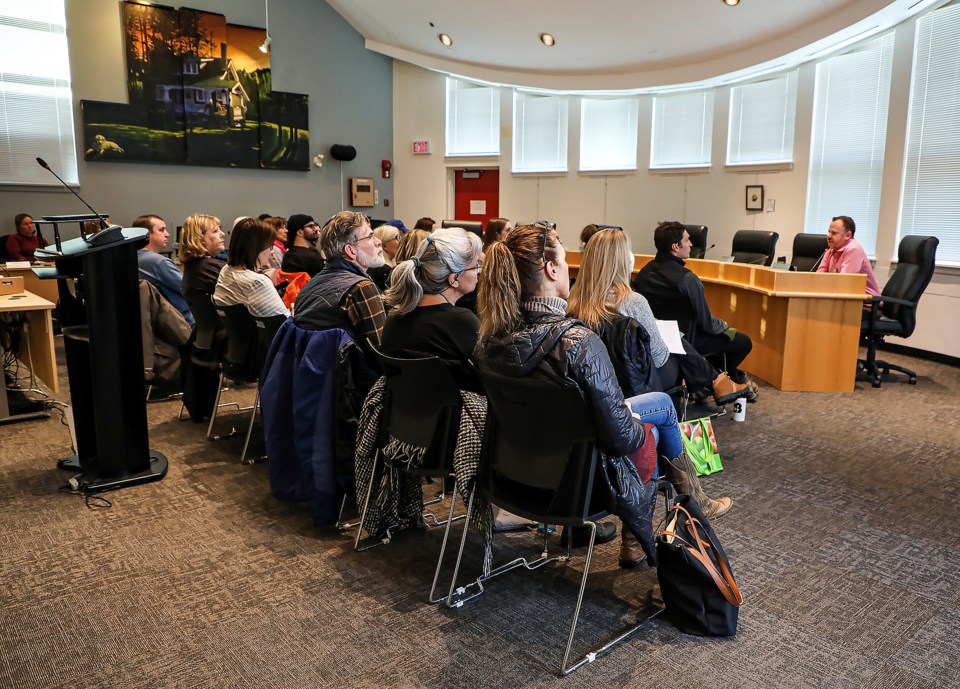BANFF – No more new bed and breakfast homes would be permitted in Banff under proposed legislation, unless they are located in a legally protected heritage home, in a bid to deal with the tourist town’s housing crisis.
The governance and finance committee voted 4-1 to direct administration to draft bylaw changes that would whittle away the number of B&Bs in residential districts over time by capping the overall number at 36, with 15 of those to be located within buildings designated as a municipal historic resource.
All existing B&B homes would be grandfathered until such time as they closed, sold or had their permits revoked for violating rules – but because there are currently 40, there would be no new applications in Banff, with the exception of up to 15 in designated heritage properties as a way to preserve the town’s dwindling heritage assets.
Coun. Barb Pelham said she would like to see this evolution, pointing to a top priority in council’s strategic plan to build a better Banff by creating conditions that provide a mix of affordable housing options to ensure those working in Banff can live in Banff.
“One way to do that is to increase the supply of housing and currently 40 homes are used as accessory guest accommodations, limiting their use for long-term accommodations for residents,” she said, noting she has seen suite after suite converted to B&Bs in her four years on Municipal Planning Commission.
“I recognize this new bylaw as it’s written will prevent further erosion of our housing stock in that way, and I very much appreciate that, but I would like to see us reclaim some of that housing stock for our residents.”
There are currently a total of 40 B&B homes in Banff and eight B&B inns, which are more small boutique-like hotels in residential neighbourhoods. The proposed new clause would not include the eight B&B inns which are already capped.
Currently, one of the 15 so-called heritage B&B permits is taken by Abegweit on the grounds of the Whyte Museum of the Canadian Rockies, leaving 14 available for other municipally-designated heritage properties if the legislation passes.
Pelham said it would take years to get to the new quota, stressing this does not affect existing operations, but it signals an effort on behalf of this council to do things to support providing housing within the town, which has an extremely low rental vacancy rate.
“My No. 1 goal is to increase the number of bedrooms available for our residents as opposed to our visitors,” she said.
“We have 3,400 hotel rooms in our town. I would love to see more bedrooms for our residents.”
Administration will now seek comments from the municipality’s legal counsel and Parks Canada on the draft bylaw, which aims to strengthen the regulations relating to visitor accommodation within residential districts.
Following that, council will consider first reading of the bylaw and set a public hearing for community input.
Coun. Grant Canning voted in support of the proposed legislation at this point in order to facilitate a conversation with the community, but indicated he may not support it in the end.
He said he liked the aspect that all existing operations would continue and be grandfathered, but was concerned about the guest experience for those who prefer the more intimate stay of a B&B as opposed to a larger, busier hotel.
“This isn’t just capping it; this is actively working backwards,” he said.
“It’s a tough one and I’ve got to get my head around it and think a lot about the implications of that because there are an awful lot of implications.”
Canning said there also may be other options to consider if the intent of the proposal is to try to create more housing for residents.
“One thing we may want to discuss is putting a moratorium on issuing new licences until we have something like a three per cent vacancy rate,” he said.
“That could be another way to approach this that isn't a hard and fast cap.”
Coun. Ted Christensen voiced strong opposition, noting some families look to B&Bs as opportunities to increase their income.
“I think most of the people who are buying B&Bs are buying to find an affordable way to increase the size of their accommodation; they’re buying a home with a potential to operate as a B&B in order to afford to stay,” he said.
“Don’t you think we’ll lose 21 or more families because they can’t afford to stay here because they’re looking for more money to supplement their lifestyle? A B&B will provide that forum – it seems to me there’s a danger here.”
Mayor Corrie DiManno said she is committed to solving the housing crisis, but reiterated this proposal is not written in stone as it still has to come to council for first reading and public hearing.
“It raises a very philosophical conversation with our community around B&Bs or more inventory for families, or staff accommodation or what-have-you, or lots get redeveloped into higher density,” she said.
“Our community is at a point where we should have that conversation. It’s not going to be pretty, it’s probably going to be spicy so that means it’s really important.”
Since January 2019, Town administration has been working on amendments to the bed and breakfast regulations contained within Banff’s land use bylaw, seeking input from a B&B working group, Banff Heritage Corporation and Municipal Planning Commission.




